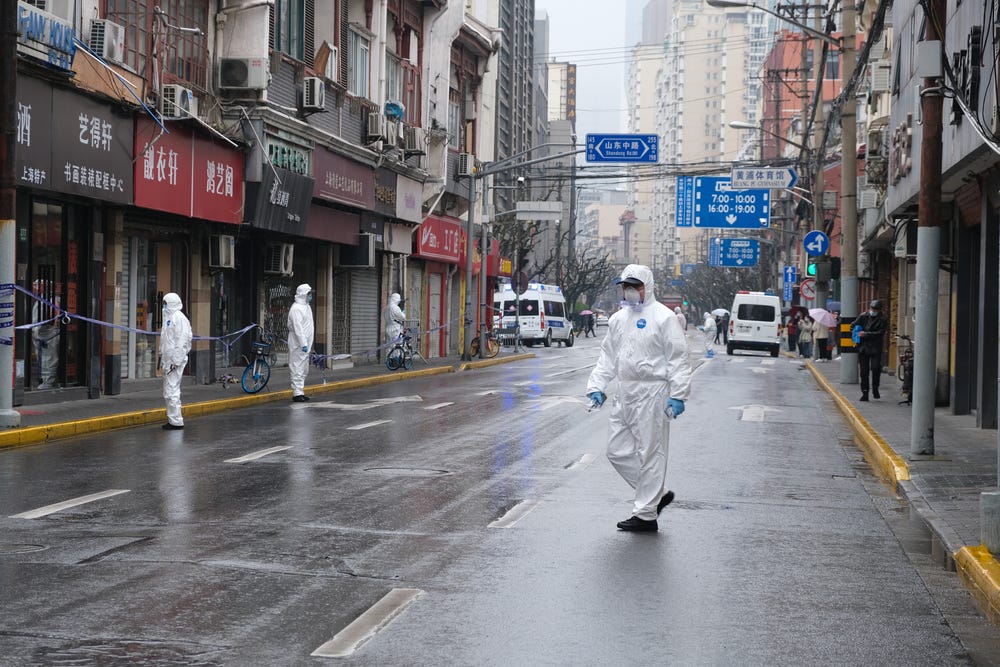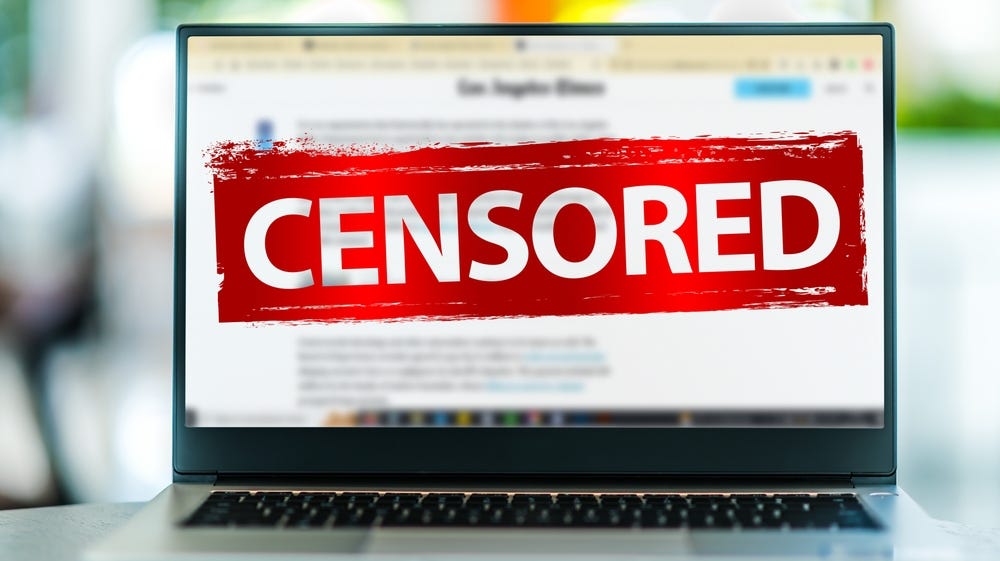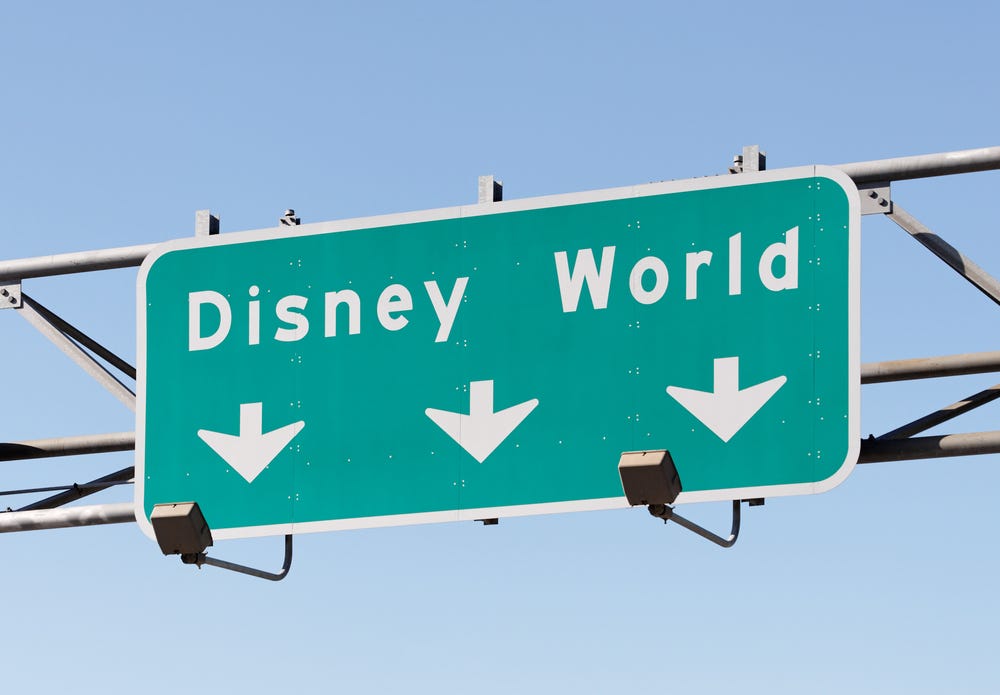E-Pluribus | August 4, 2023
Growing dissent in China after COVID; an investigation into the Biden administration's censorship efforts; and a Desantis v. Disney debate.
A round-up of the latest and best writing and musings on the rise of illiberalism in the public discourse:
Aaron Sarin: Dissent In Post-Covid China
China’s strict Zero-COVID policies have hit the economy hard, and its recovery since reopening has been slow, at best. At Persuasion, Aaron Sarin writes that this current economic stagnation in the wake of authoritarian public health policies, mixed with rising nationalism, has had a significant impact on dissent in the country.
The emerging danger for the CCP is that fervent nationalism and discontent with the authorities may not be mutually exclusive. Large protests have continued since the dramatic events of late 2022. In February, hundreds of senior citizens demonstrated in Wuhan and Dalian after the government reduced funds that had been available to the elderly for medical care, rendering some medications unaffordable. (Over the coming years, as China’s skewed demographics distort more and more wildly, seniors in their swelling numbers will prove a persistent headache for the Party.)
The protesters sang the socialist anthem “The Internationale,” as well as traditional Chinese patriotic songs. Both of these were implicit rebukes. For protesters to sing “The Internationale” sends a message that the Communist Party is being insufficiently communist. The singing of patriotic songs, meanwhile, will be particularly disturbing to authorities. Having spent decades encouraging hyper-nationalism, Beijing knows that this passion must be watched carefully for signs that it may wriggle out of control and turn against the government—China versus the Party.
For now, large-scale, explicitly anti-CCP protests have stalled. This tells us nothing about the true level of dissent. Think back to autumn 2022: some kind of breakdown might have been predictable after the strains and fatigues of Zero-COVID, but no one could have imagined that anti-lockdown protesters would start calling for democracy and for the removal of Xi Jinping. Seasoned China-watchers were stunned. “Just as we thought civil society had collapsed,” said the human rights lawyer Lu Miaoqing, “tens of thousands of people took to the streets.” We have no idea how long revolutionary fury had been seething below the surface of China’s “harmonious” society. Now that we’ve seen widespread insurrection explode into view, we know it exists, even in periods of apparent calm.
Read the full piece.
Gabe Kaminsky: Jim Jordan Launches 'Misinformation' Investigation to Uncover Biden 'Censorship' Scheme
This week, we published an essay on how the recent injunction in the Missouri v. Biden case identified several key initiatives by the Biden administration to pressure social media companies to censor certain speech. The Washington Examiner’s Gabe Kaminsky reports on an investigation launched by Rep. Jim Jordan (R-OH) into alleged coordination between the White House and a group called Center for Countering Digital Hate.
"We know from the Facebook Files that the Center for Countering Digital Hate was working with the White House to censor speech," a senior GOP congressional aide with knowledge of the inquiry said. "But how far did it go? Republicans want to find out, and of course subpoenas are on the table if we don’t get answers."
Jordan's letter, which was first obtained by the Washington Examiner, is the latest escalation of the GOP's efforts to investigate how the federal government has, in some cases, coordinated with the private sector to flag certain speech, including speech related to COVID-19, as "disinformation" or "misinformation." The chairman has recently been publicizing subpoenaed documents from Facebook, now called Meta, showing how the platform kept in close contact with the Biden administration on content moderation.
[ . . . ]
In April 2021, an employee at Facebook replied on an email thread dubbed "Vaccine policy" to their colleagues with a "draft escalation email" to be used internally, citing Center for Countering Digital Hate's March 2021 report called "The Disinformation Dozen," according to records. The report cited individuals the center alleged "are twelve anti-vaxxers who play leading roles in spreading digital misinformation about COVID vaccines," and counts Democratic 2024 presidential hopeful Robert F. Kennedy Jr. as one of them.
"We also continue to see pressure from partners and policymakers, including the White House, to remove entities that are seen to be contributing to a large amount of vaccine misinformation content (commonly referred to as the 'disinformation dozen' which CCDH asserts are responsible for 73% of vaccine misinformation on Facebook)," the employee wrote to their colleagues.
The email continued, "We continue to monitor these entities on platform, and are reviewing the off platform as well, but do not believe we currently have a clear path for removal of these."
Read it all.
Jason Lee Steorts: Disney, DeSantis, Distinctions
National Review writers Michael Brendan Dougherty and Charles C.W. Cooke recently debated whether Ron Desantis was justified in stripping away Disney’s special treatment in Florida. Jason Lee Steorts weighs in at NRO on this debate and argues that Desantis’ impetus for targeting Disney is crucial to understanding whether the company was unfairly punished.
What I’d like to emphasize is, first, that there is no apparent disagreement between Michael and Charlie about whether Disney faced retaliation — or, if you prefer a more neutral term, repercussions — for its speech and expression, but only about whether this was justified. And second — the crucial distinction — Disney did not face retaliation/repercussions for its artistic speech and expression, nor even for speech about curricular policies. Something much more specific and sinister happened: Disney was singled out and punished in response to its criticism of a legislative act.
Targeted repercussions for those who speak or organize politically against legislative acts is inimical to the spirit of representative government. It is at odds with the very presuppositions of representative government, and become a general practice it would make representative government impossible.
[ . . . ]
For a governor and a legislature, then, to react pissily** to the participation of some individual or association in the ritual of politics — to make an example of it for doing so, no less — is to signal that if individuals or associations do not like how they are being represented and choose to make this known, they will pay a price for having done so.
To isolate what is wrong with that — and why the content of political speech and participation truly is immaterial to the wrongness of retaliating against it — imagine that Disney had objected not to Florida’s curricular law but to some arcane matter, perhaps a small change in the formula by which property taxes are calculated, and that the governor and legislature had avenged themselves in the same way. Everything in my previous paragraph would still apply. It would be no less as if the governor and the legislature were simultaneously rulemaking body, referee, and extremely aggressive combatant in a boxing contest.
Read it all.
Around Twitter
Speaking of Disney, Ron Desantis has appointed quite a character to Disney’s oversight board, via Matt Yglesias:
Excerpts from a thread from Walter Olson on whether the indictment against Donald Trump threatens free speech:
Finally, the Foundation for Individual Rights and Expression (FIRE) has also released a statement on Trump’s prosecution:










